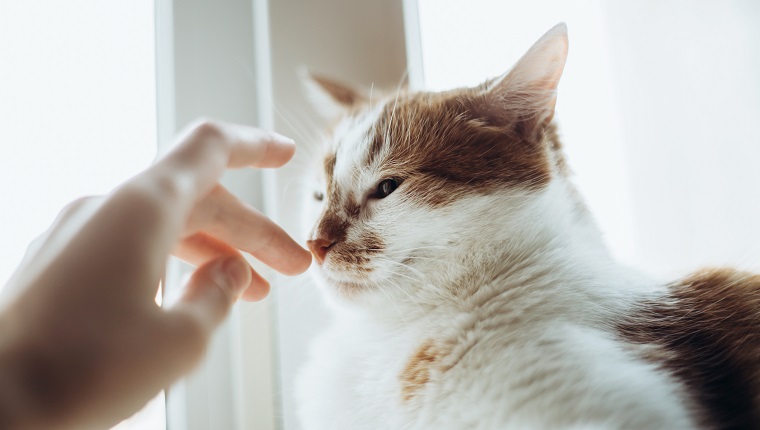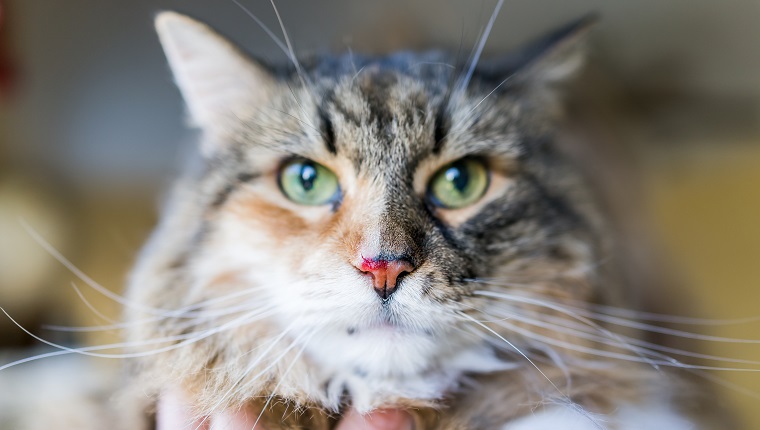Nosebleeds in cats, medically referred to as epistaxis, can be alarming for cat parents to witness. In a lot of cases, they can result from trauma to the area or from contracting some sort of upper respiratory tract infection.
In some cases, the cause can be a more serious underlying condition, including organ failure. However, there are also some simple first aid steps that you can take at home to try to stop the bleeding with your vet’s guidance.
If you see signs of blood coming from your kitty’s nose, then you should consult your veterinarian for a proper diagnosis and course of treatment. Here’s what you should know about the symptoms, causes, and treatments of nosebleeds in cats.
Symptoms Of Nosebleeds In Cats
Beyond the presence of blood emerging from the feline’s nose, nosebleeds in cats can appear with other, less common symptoms, including:
- Other discharges from the nose
- Sneezing a lot
- Breathing difficulties
- Acting lethargic and weak
- Bad breath
Causes Of Nosebleeds In Cats

Nosebleeds in cats most commonly result from trauma to the area. Some of the other causes may include:
- Various infections (including upper respiratory tract infections)
- Ingesting rat poison
- Bone marrow issues
- Reaction to medication
- Disease caused by a fungus
Treatments For Nosebleeds In Cats
If you witness your cat suffering from a nosebleed, then you can try to carry out some basic first aid procedures at home to try and stop the bleeding. Keeping your kitty calm is important, along with the use of an ice pack around the nose area.
When dealing with persistent nosebleeds, you should make a visit to your veterinarian. Your vet will want to carry out a physical examination and ask questions about any recent incidents that might have caused the nosebleeds.
Such incidents could include physical trauma to the nose area, exposure to vermin poisons, and starting a new course of medicine, including anti-inflammatory drugs. The vet may order blood tests and subsequent blood clotting tests to determine the cause.
When it comes to treatment, your vet will want to identify and treat the underlying cause. Depending on the underlying cause, this might involve a course of antibiotics.
As ever, if your vet prescribes medicine for your feline, then you must stick precisely to the dosage and frequency instructions provided and complete the full course of medication.
In cases where anxiety might be a factor, making environmental changes to foster a more calming home environment might prove effective, as well as potentially using sedatives.
Has your cat ever started to suffer from frequent nosebleeds? Did your vet figure out the cause? Then tell us all about it in the comments below.




